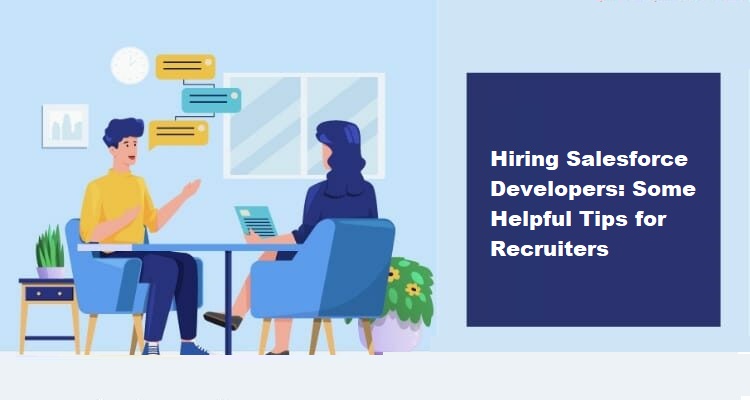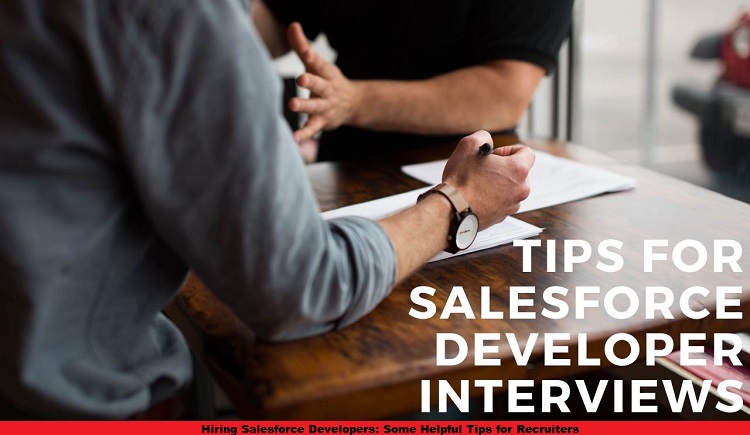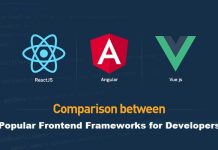Salesforce is one of the most extensively used CRMs globally. It has a reputation for flexibility, customization, and work process automation. Being such a big name among CRM platforms, managing and improving Salesforce requires trained professionals and knowledgeable developers.
They should be able to introduce functional and beneficial features to grow your business, such as ensuring smooth fax integration in Salesforce or others. They also need to train team members on how to use it. But how do you find the perfect fit?
This article contains ideas for hiring expert Salesforce developers and pointers on what to bring up or avoid during interviews.
What Salesforce Roles Exist

What should you know before you start your search? First, determine who you’re looking for. A Salesforce specialist can not be just a one-man-band. They range in their talents and duties, and numerous available positions exist.
These positions define the type of job the individual will do. We can highlight six primary Salesforce roles:
- Administrator (runs the CRM);
- Developer (tunes up the CRM based on the company’s needs and business aspects);
- App Builder (makes applications);
- Architect (is responsible for creating technical solutions to construct the ecosystem);
- Consultant (deals with Sales Cloud, Community Cloud, and Service Cloud issues and may involve in employee training);
- Specialists (such as Salesforce Marketing, Pardot, CPQ, and other experts).
Figure out your requirements. It will increase your chances of discovering the appropriate applicant. As a result, a sought-after Salesforce role is a crucial factor to remember while creating job descriptions.
Small businesses opt for one full-stack Salesforce specialist. Larger enterprises, in turn, typically have multiple professionals, each with their layer of work (for example, an Administrator and an App Builder). What you write in the job description varies from case to case, but you should always consider the existing roles.
Market Statistics on Salesforce Development Jobs
There were 89,164 job openings for Salesforce developers in 2018. And this is 206% growth since 2013. What are Salesforce developer salaries? The average Salesforce developer earns $108,000 a year.
According to the latest research from International Data Corporation, Salesforce and its partners will create 9.3 million new jobs by 2026. It will amount to $1.6 trillion in new business revenues. It means that Salesforce development jobs will be in even greater demand than now.
Why will there be more Salesforce vacancies?
Companies will focus on providing customer and employee success from anywhere. It includes switching to remote work, contactless client communication, and environmental initiatives.
This is how the global CRM leader and cloud-related technologies will help its customers:
- dealing with the uncertainty;
- facilitating remote work and customer engagement;
- speeding up the product development process;
- among other vital business process optimization activities.
How long does it take to receive a job offer as a Salesforce developer?
It depends on the skills and experience, but it takes around 2-3 weeks or a couple of months on average. It also varies in terms of the conditions of why and how you want to hire a Salesforce developer.
What Are the Recruiting Options of Salesforce Developers?
Generally, we speak about direct hiring when looking for a permanent employee without third-party services. It takes more time but gives you control over the chosen candidates.
What if you don’t want to hire directly?
You may opt for staffing agency services as a direct hiring alternative and get a Salesforce professional in a few days.
But a company may have various needs. For example, you need a Salesforce specialist for a three-month project.
Below are the three most typical types of hiring:
- Temporary, meaning an expert fulfills the duties during a short period. For example, you need a guide in a team to complete a project during busy seasons.
- Contract hiring involves signing a contract to stipulate terms of work, such as how long a developer will work in a company.
- Contract-to-hire. When a company hires a temporary employee for a certain time and offers a permanent position based on their performance.
Should You Be Hunting for a Certificate?
What do we look for on a resume besides experience? It’s certification and education. And here, I mean any developer or professional.
A Salesforce specialist may not have a specific college degree. It’s not obligatory. However, Salesforce offers official paid-for exams. People can pass them to verify platform expertise with the relevant certification.
There are over 30 certificates available, each covering a different aspect of platform knowledge. The most notable Salesforce certifications for the developer role are:
- Salesforce Certified Platform Developer I;
- Salesforce Certified Platform Developer II;
- Salesforce Certified Platform App Builder;
- Salesforce Certified B2C Commerce Developer;
- Salesforce Certified Marketing Cloud Developer;
- Salesforce Certified JavaScript Developer I.
But should you cast aside everyone without Salesforce certification?
Many business owners wonder whether it is a must-have when hiring a Salesforce developer. That’s a topic of heated debate among recruiters and Salesforce experts.
Certified professionals claim the importance of having certificates. Why is Salesforce certification advantageous? It backs up skills and knowledge in the eyes of recruiters.
On the other hand, the lack of certification doesn’t kill your chances at all. Instead, the experience of working with the platform can outweigh some written proof since many things are learned in action. So the bottom line is that Salesforce certification is more of a plus than a must.
What can I advise recruiters?
Focus on previous experience with the platform and consider certification as a bonus when deciding on a Salesforce developer.
The same applies to having the right kind of experience. What if you are hiring a Salesforce Admin, but they’ve only worked on Marketing Cloud? It’s hardly the best candidate for you. While Trailhead badges are a good start, prioritize relevance to future tasks.
How can you save your time when looking for a Salesforce developer?
Conduct pre-interview tests. They’ll help you learn a great deal about your candidates, for example, their technical abilities or code challenges.
You can automate these online exams to save your time before a person arrives at the interview. Some code assessment platforms can be:
- HackerRank;
- HackerEarth;
- CodinGame.
Skills a Salesforce Developer Should Possess
An ideal scenario implies knowing both platform-related and technical matters.
Which programming language does it include? Recruiters should pay attention to experience in:
- Apex coding;
- Javascript;
- CSS;
- HTML;
- PHP;
- Java;
- or another object-oriented programming language.
Platform-related knowledge includes:
- Visualforce framework;
- Salesforce Lightning;
- SOQL;
- SOSL.
Questions You Should Ask Salesforce Developer
I’ve collected some questions to ask a Salesforce developer during the interview. But of course, there’s a more comprehensive list of Salesforce interview questions and answers you can compile.
1. How Do You Keep Honing Your Salesforce Skills?
Why do you need to keep up with CRM updates? Because with each official platform release, pros should update their certificates. Salesforce provides an official learning platform, Trailhead, which is a worthwhile investment.
A candidate can also present literature, blogs, podcasts, or channels (apart from official documents) to study. One of them is Salesforce Ben.
2. What Salesforce Automation Tools Do You Know?
The CRM can boast the ability to automate work processes, so it’s critical to be familiar with the various ways of workflow automation. A candidate should mention the Process Builder and Workflows. You can also inquire about when one is better than the other.
3. What Salesforce API Examples Do You Know and How to Use Them?
There are several Salesforce APIs to query the databases, such as:
- REST API, which employs either XML or JSON formats. It’s considered the most straightforward integration approach.
- Bulk API is used to import third-party data into Salesforce.
- Streaming API. It reflects Salesforce data updates, returning results that match user-defined SOQL queries.
4. Why Can Data Loss Happen in Salesforce?
You aren’t protected against data loss while working with Salesforce. The following scenarios may lead to it:
- migration between data types (text to email, number to money, percent to number, etc.);
- migration from a checkbox or multi-select forms to any other format type;
- date and time changes;
- accidental deletion;
- broken data imports;
- SOQL errors and faulty execution code;
- and other integration issues.
You need to back up data and hire Salesforce admins familiar with big data.
5. Are You Ready to Pass a Test Assignment on Salesforce?
It would help if you saw the specialist in action. As the task can take too long, it would be enough to complete a simple task, such as designing an approval process. A candidate can go the extra mile and resolve a minor problem you are currently working on as a test task.
Conclusion
It doesn’t matter where you start your search: Upwork, LinkedIn, Salesforce AppExchange, or your local recruiting channels. Finding the right candidate mainly depends on how well you understand who you’re looking for, as they’ll need to cover particular roles and nuances.
The need for Salesforce developers is becoming more urgent each day. IDC reports that Salesforce Cloud Services will generate up to $1.2 trillion of company revenue from 2019 to 2024. These figures indicate that recruiters will hire three times more Salesforce developers in the future than now.







